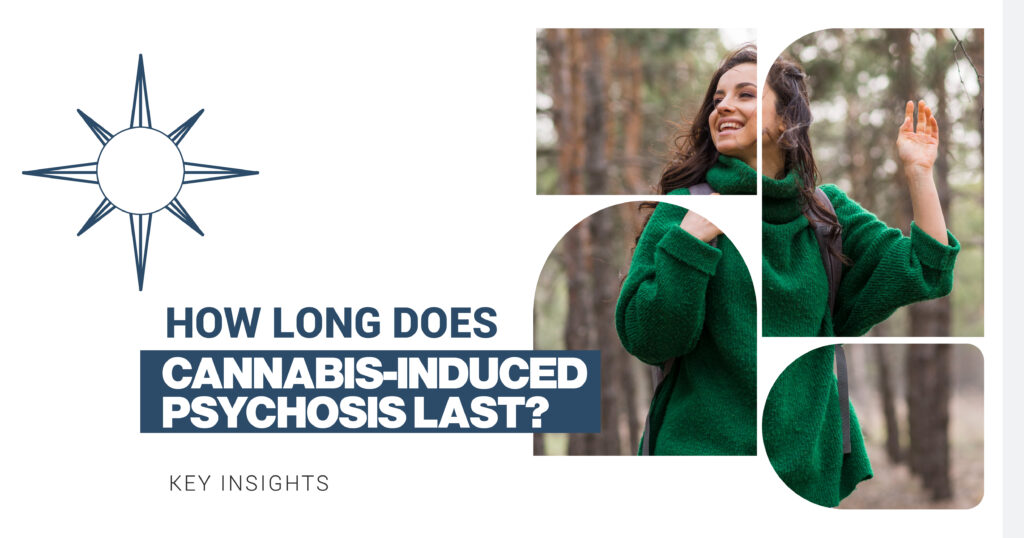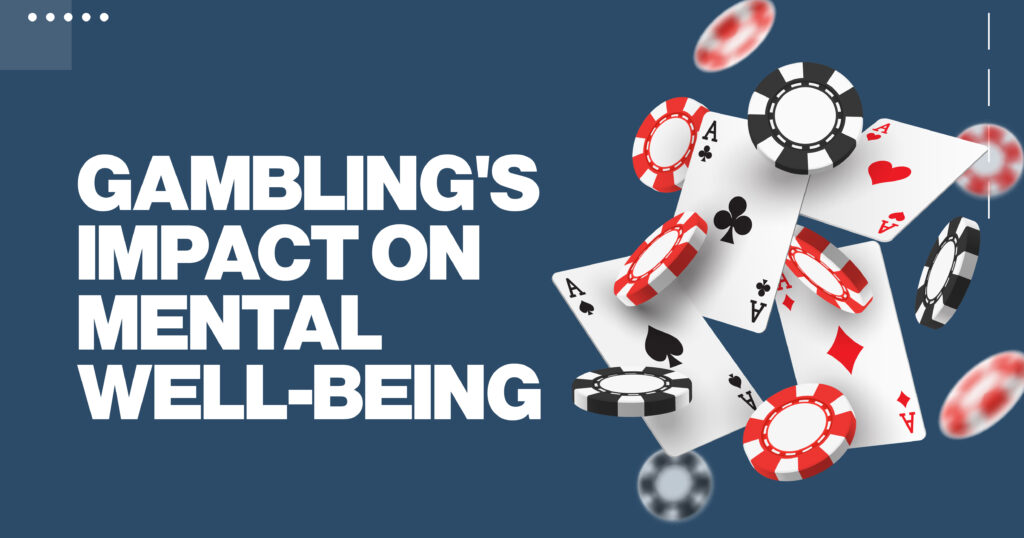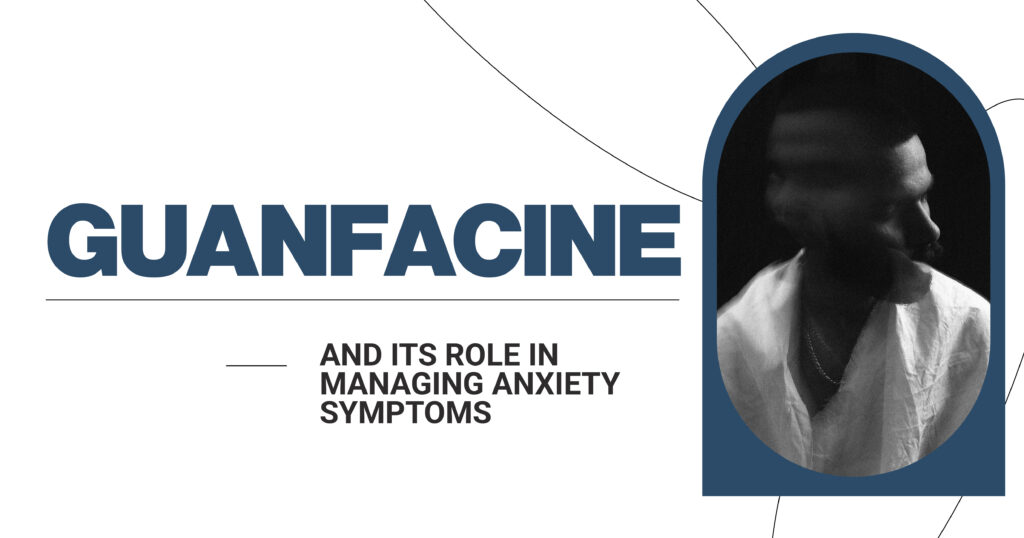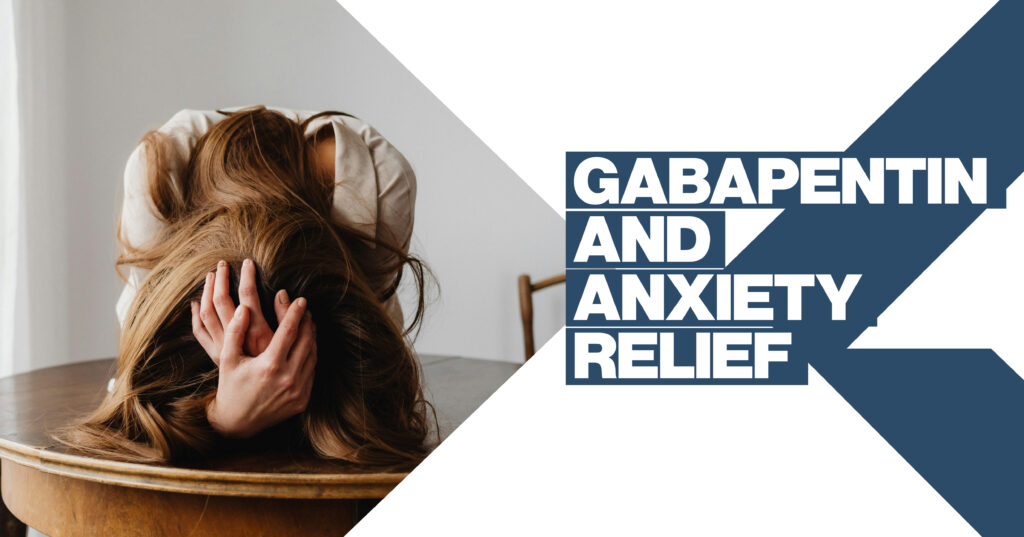The use of cannabis that has been legalized for medical, recreational, or even both benefits its users on either side. The user may put cannabis to use, only to end up eventually encountering the unwelcoming phenomenon of cannabis-induced psychosis.
The article explores the diagnosis, its signs, the duration of recovery, treatment options, and prevention, which are all valuable to the reader.
Understanding Cannabis-Induced Psychosis (CIP)
What Is Cannabis-Induced Psychosis?
Cannabis-induced psychosis, as indicated by its name, is a mentally induced impairment that follows the use of cannabis, chiefly the latter high concentration of THC strains.
Taken via direct action on the endocannabinoid system within the brain as a whole, primarily among others, such physiological functions include the regulation of mood, cognition, and perception. Overloading this system, to any extent, with an amount of THC larger than one’s capacity could, in its own way, lead to the manifestation of psychedelia.
Key Symptoms of Cannabis-Induced Psychosis.
CIP is characterized by a range of symptoms that can vary in severity, including.
- Hallucinations. It can be either hearing voices or seeing anything that doesn’t exist.
- Delusions. A firm belief in a false idea or concept without any evidence to the contrary.
- Paranoia. Experiencing intense and irrational mistrust or fear of others, often feeling persecuted or in danger.
- Disorganized Thinking. Struggling to form logical or coherent thoughts can lead to erratic speech or behavior.

These symptoms typically manifest shortly after cannabis use and are usually short-lived. However, the severity and duration can vary depending on the individual’s tolerance, the amount consumed, and their mental health history.
Acute Vs. Chronic Effects
Unlike disorders of mental health, which are chronic, CIP generally runs an acute course, meaning that it has a rapid onset and a rapid offset that typically follows the intoxication end of the drug use. However, in the case of pre-existing mental health conditions or genetic predisposition toward such conditions, CIP can:
| Trigger Long-Term Complications | Long-standing symptoms or raise the risks of developing some chronic psychotic disorder. |
| Exacerbate Existing Disorders | Worsen any existing condition, such as depression, anxiety, or schizophrenia. |
Pacific Coast Mental Health
Risk Factors for Developing Psychosis From Cannabis Use
Certain factors heighten the risk of experiencing cannabis-induced psychosis:
Adolescence
Adolescents are particularly vulnerable because their brains are still developing, particularly in areas related to decision-making and emotions.
Frequency of Use
Regular or heavy use significantly increases the risk, particularly when cannabis is consumed daily or in large amounts.
High THC Potency
Strains with elevated THC levels are more likely to trigger psychotic episodes than those with balanced THC and cannabidiol (CBD) ratios.
Genetic Predisposition
Mental illnesses such as psychotic disorders – schizophrenia and bipolar disorder – run in families and make their descendants more prone to the development of such problems.
Pre-existing Mental Health Conditions
Individuals with anxiety, depression, or other psychiatric disorders are at a greater risk.
How Cannabis Affects Brain Function
Most dramatically, cannabis acts on the endocannabinoid system in the brain, which is responsible for mood, memory, and perception as well as certain other physical sensations.
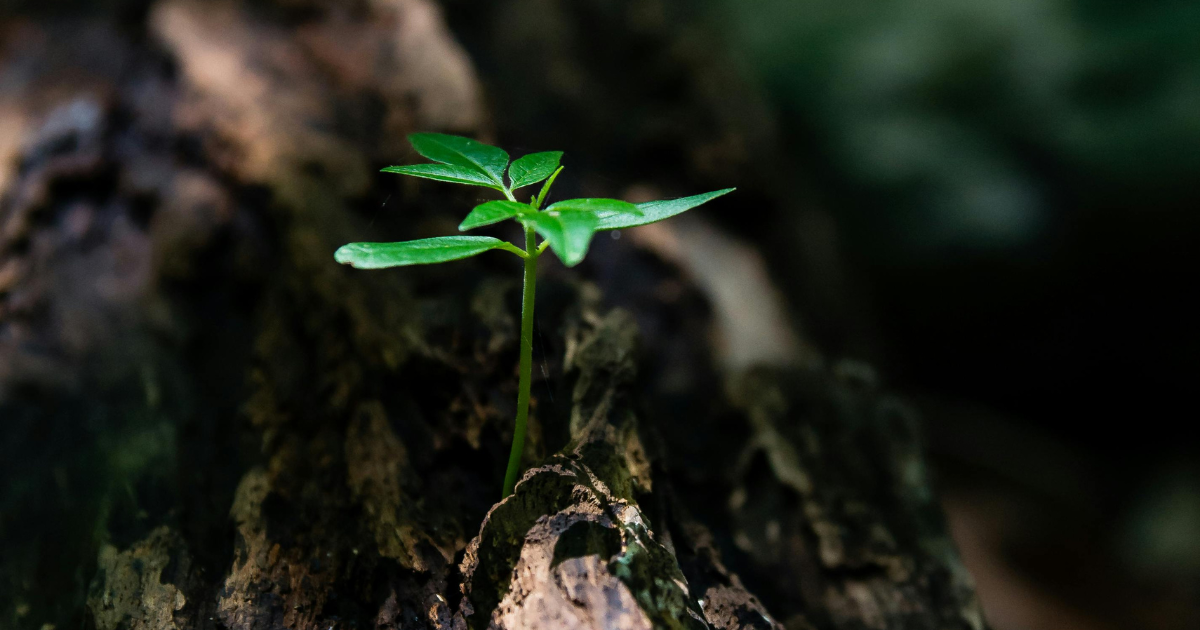
- Short-Term Effects. Small doses of cannabis could induce tranquility or lower anxiety. Big doses of THC may overstimulate the brain, which primarily affects dopamine pathways that are very important in psychotic symptoms.
- Prolonged Use. Continuous exposure to cannabis in the body changes the morphology of brain structures, especially for the areas concerned.
- Neurological Changes. Chronic exposure to high-potency bud may reduce levels of gray matter in critical brain regions, thus further enhancing the susceptibility to psychosis.
Symptoms and Warning Signs of Cannabis-Induced Psychosis
Acute Symptoms
Symptoms of CIP often develop within hours of consuming cannabis and include:
- Paranoia. Dreadful, morbid mistrust or fear.
- Hallucinations. Have perceptions of things that would not be there, like hearing voices.
- Delusions. Firmly convinced of false beliefs because such beliefs cannot be corrected by reason or evidence.
- Disorganized Thinking. Difficulties organizing thoughts or not being able to communicate with ease.
Differentiating From Other Disorders
Differentiation of cannabis-inducers from schizophrenia or bipolar disorder, yet both, is essential for effective treatment and appropriate diagnosis. Important distinctions among these two are:
- Timing. Symptoms of CIP typically arise shortly after cannabis use
- Duration. Symptoms of CIP usually subside once the drug has been metabolized by the body, unlike in chronic disorders.
Duration of Symptoms
The duration of symptoms will depend on the person’s degree of susceptibility and his/her cannabis consumption pattern.
- Mild Symptoms. Anxiety or paranoia may only last for hours.
- Moderate Symptoms. Hallucinations and delusions may persist from a day to as long as 48 hours.
- Prolonged Symptoms. Among patients who have positive predisposing factors, weeks may pass before psychosis abates or before a medical intervention becomes necessary.
How Long Does Cannabis-Induced Psychosis Last?
Acute Phase
Cannabis-induced psychosis is primarily transitory. Symptoms can emerge for a few hours to a week. Usually, the duration coincides with THC staying in the bloodstream and its active involvement with the brain’s receptors. Symptoms such as hallucinations, paranoia, and disorganized thought are prevalent during this stage and peak at their highest intensity.
Factors Influencing Duration
The length and severity of psychotic episodes vary depending on several factors:
| THC Levels | Strains that are rich in THC potency can extend the period of symptoms due to more prolonged metabolism by the compound. |
| Frequency of Use | Those who have been chronic users of cannabis may get the most drawn-out episodes of psychosis due to THC accumulation in fat stores. |
| Individual Differences | Recovery time can depend highly on genetic factors, age differences, metabolic factors, and overall health. |
| Mental Health History | Previous psychiatric illnesses such as anxiety or bipolar disorder may be associated with an increase in the length of recuperation or sometimes additional intervention. |
| Substance Use Patterns | Simultaneous use of other substances, like alcohol or stimulants, can exacerbate and extend symptoms. |
Recovery Time
However, some individuals endure prolonged episodes that last from weeks to months. Prolonged psychotic episodes are usually few. Chronic schizophrenia is one of the bad signs of them. Some research suggests that individuals with a mental illness predisposition and/or chronic cannabis use are more likely to have prolonged withdrawal periods.
Pacific Coast Mental Health
Does Cannabis-Induced Psychosis Go Away?
Natural Resolution
Most of the time, symptoms of cannabis-induced psychosis tend to resolve on their own as THC is metabolized and excreted from the body in a few days to a week, depending on the amount of THC consumed and the individual’s metabolic rate. During this period, the individual in recovery eats, sleeps, and maintains abstinence from further cannabis use.
Professional Intervention
Professional treatment may be necessary for individuals with prolonged or severe symptoms. Options include:
- Medications.
- Antipsychotics. Help stabilize hallucinations, paranoia, and other acute symptoms.
- Anxiolytics. Manage anxiety and agitation during recovery.
- Therapy.
- Cognitive Behavioral Therapy (CBT). It helps patients understand and reframe negative thoughts associated with psychotic episodes.
- Trauma-Informed Therapy. Addresses underlying emotional or psychological triggers that may contribute to cannabis use.
- Support Systems.
- Family involvement and peer support can create a nurturing environment that promotes healing and reduces stigma.
Treatment Options for Cannabis-Induced Psychosis
Medical Interventions
Medical therapies are usually indispensable to people suffering from severe psychosis or those who measure the risk they pose to themselves or others. These people can be hospitalized for a short period, providing a safe environment in which they can become stabilized.
Antipsychotic or mood stabilizing medications usually assist in the effective management of the acute symptoms suffered by such individuals, helping them regain stability and start the recovery process.
Therapy Approaches
The therapeutic approaches have been fundamental in the management of recovery. Techniques such as Cognitive Behavioral Therapy (CBT) can identify triggers and then provide preventive relapse strategies.
Psychodynamic therapy, which addresses underlying emotional issues that may be causing substance use, and motivational interviewing, which enables one to think about healthier choices and be committed to them, are also part of the therapeutic framework for recovery. All these help in long-term recovery and personal development.
Lifestyle Changes
Sleeping in a cool room, eating well, playing sports, maintaining hydration, and having a routine contribute to mental health. At the same time, there is strength in mindfulness practices like meditation or yoga, not falling back into these places. Strict abstinence from cannabis, coupled with cognitive-behavioral therapy and group assistance, helps prevent the occurrence of psychosis.
Preventing Cannabis-Induced Psychosis
Understanding Safe Use
- You should begin with low-THC strains, especially if you are a new user.
- Balance with CBD-rich products to smooth psychoactive effects.
- Do not mix cannabis with alcohol or other drugs.
Recognizing High-Risk Situations
- Avoid using at times of high stress.
- Limit use in case there’s a family history of mental disorder.
- Make sure you are in an environment of comfort and safety.
Education and Support
- Educational Resources. Know about the effects and risks of cannabis.
- Support Groups. Join a community that shares experiences with others in the same situation and teaches coping methods.
- Professional Guidance. Consult a doctor about your mental health concerns.
Understanding and Addressing Cannabis-Induced Psychosis
One must never forget that weed-induced psychosis is a serious matter that underscores the need to learn more about the dangers it bears as a result of its abuse. The bottom line is that some may occasionally need a readjustment to recover fully.
Remember that with practical education and responsible decision-making, you can enjoy the benefits of cannabis with minimal disconcerting effects. Call a mental health professional if you or someone you know shows these signs.
Pacific Coast Mental Health
FAQs
How long does cannabis-induced psychosis last?
People usually get better in a few minutes to a week, in the case of the typical, optimized OCD. Although, among individuals with a mental illness, as in those who regularly smoke cannabis, these individuals can carry on for longer spells, spanning weeks to even months in comparison to the standard.
Can weed paranoia lead to long-term mental health issues?
Although weed paranoia is mainly temporary, chronic usage of high-THC cannabis may have a relationship with permanent mental health disorders, for example, anxiety, depression, or schizophrenia, especially for genetically predisposed individuals.
Is cannabis-induced psychosis treatable?
Nevertheless, most instances heel of their own accord. In cases of severe or chronic symptoms, treatment with antipsychotic medications, psychotherapy (CBT, for example), and supportive interventions will restore the individual. Early intervention improves prognosis significantly.
What are the warning signs of cannabis-induced psychosis?
Primary symptoms include paranoia, hallucinations, delusions, and disorganized thinking; they are experienced, generally soon after usage by the individual, with cannabis-specific strains high in THC.
Can I prevent cannabis-induced psychosis?
Moderating use, using low-THC products, refraining from use when having a history of mental health problems, whether personally or in the family, and addressing any early symptoms immediately will reduce risks.





